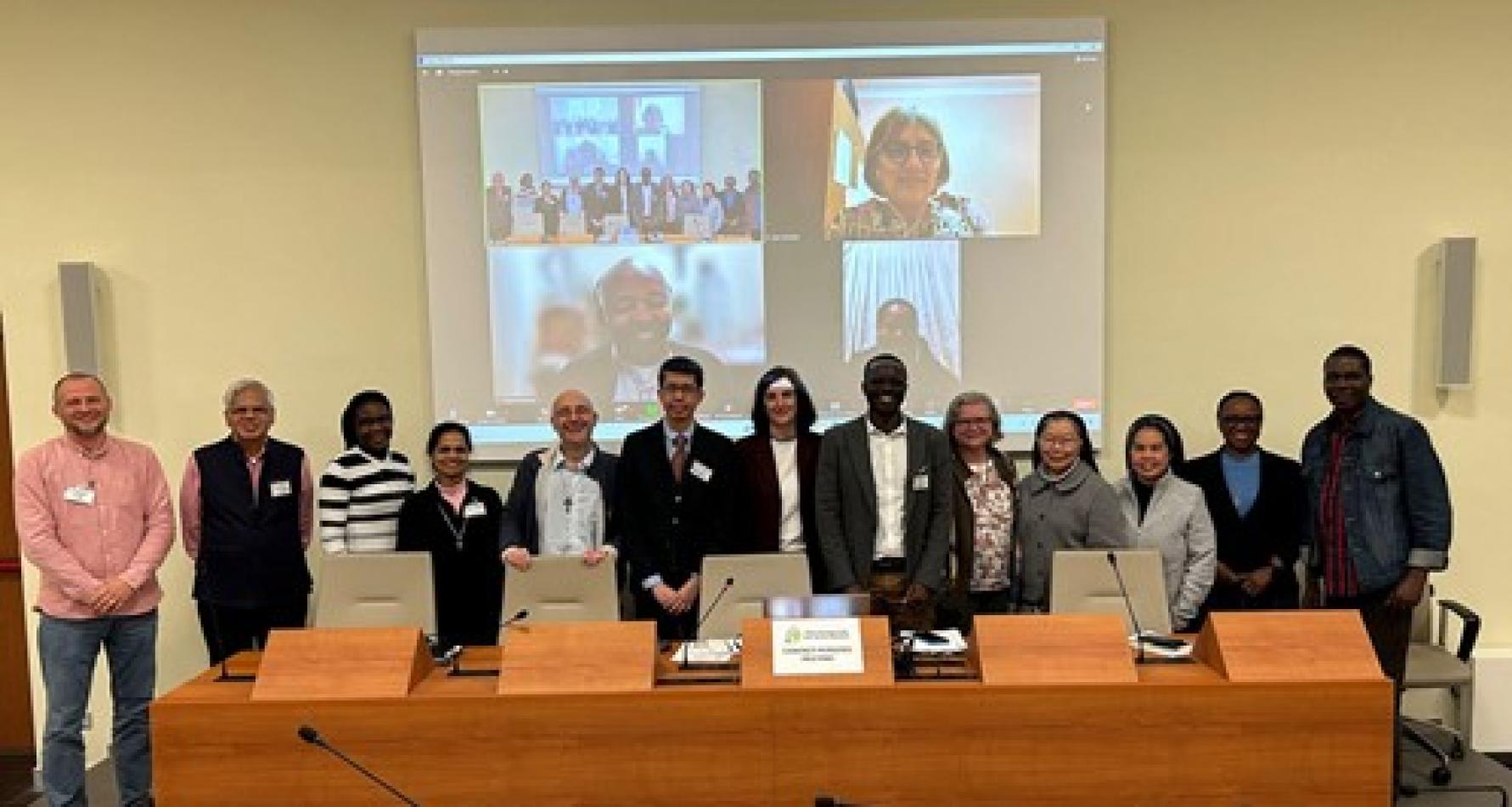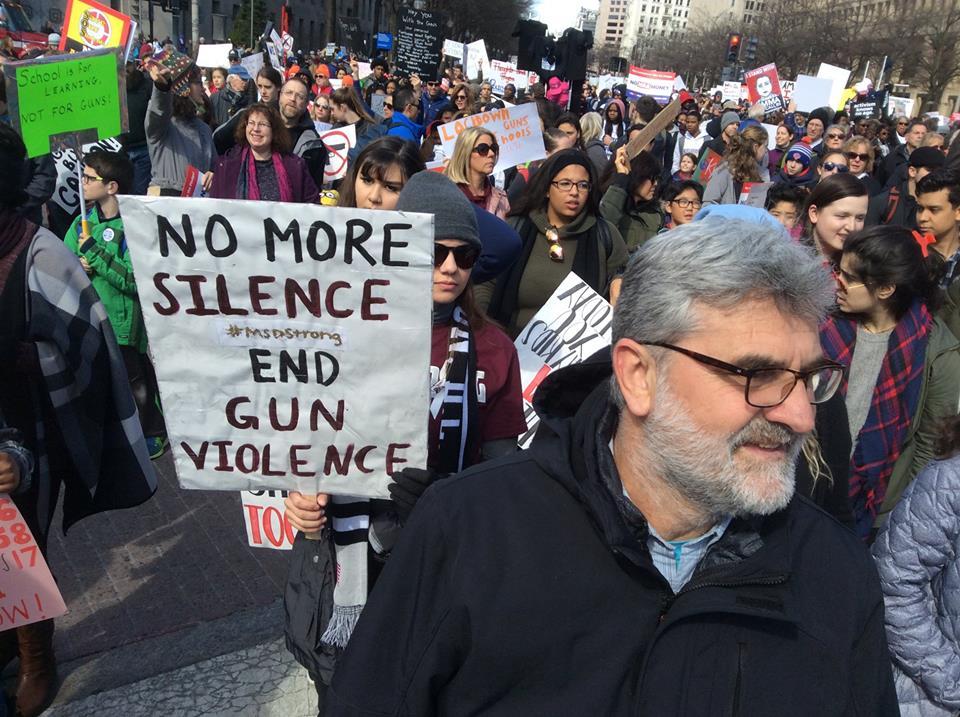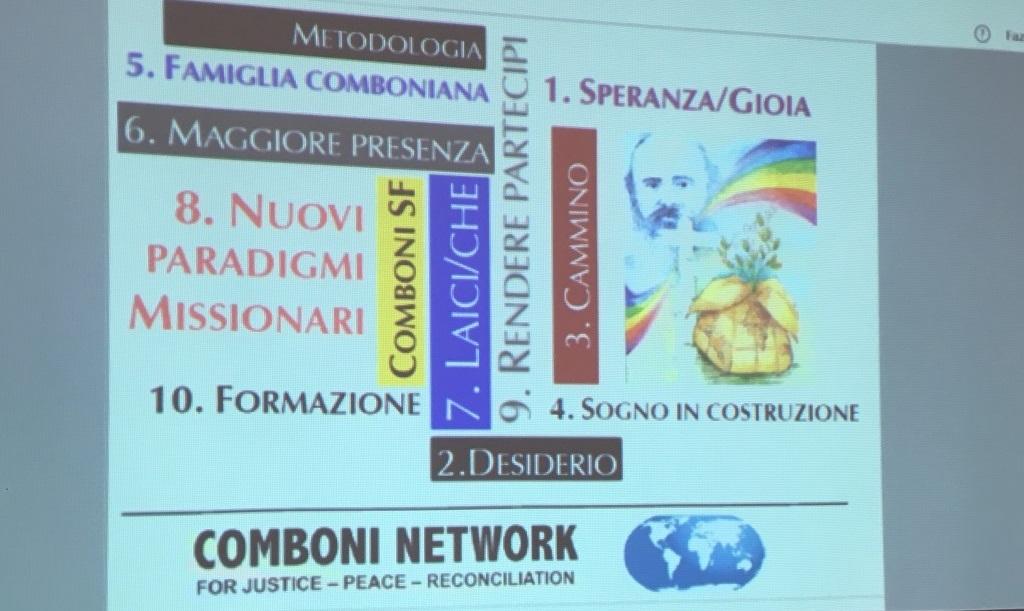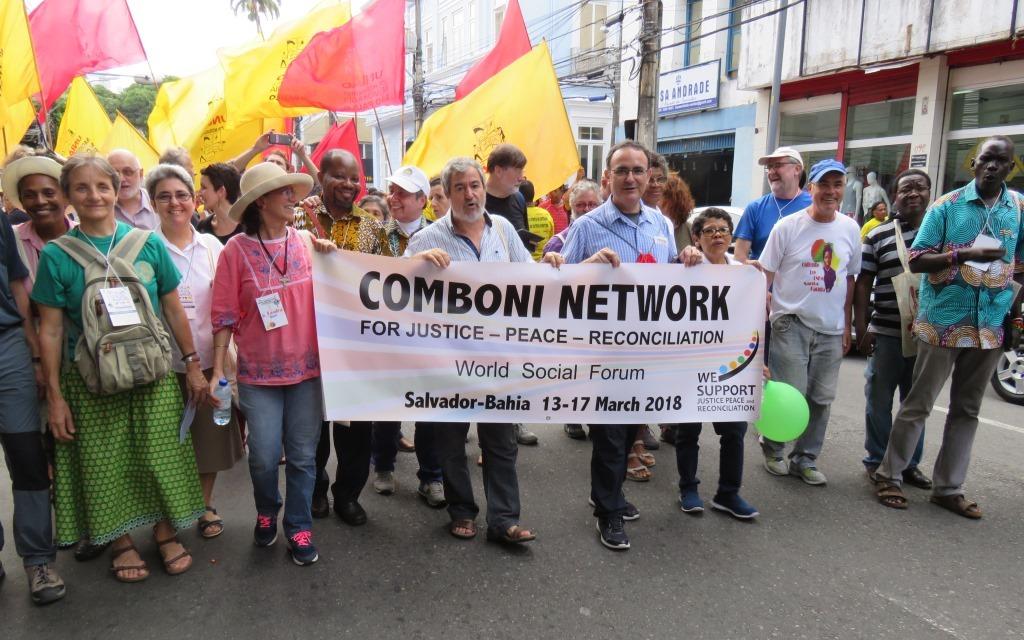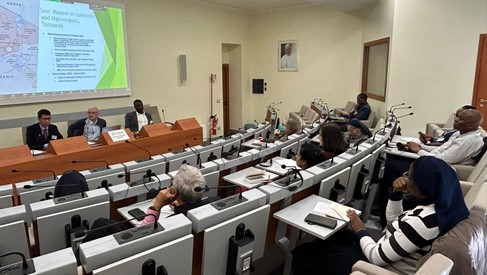Daniele Comboni
Missionari Comboniani
Area istituzionale
Altri link
Newsletter
Thursday, April 11, 2024
On 14 March 2024, AEFJN held its contact persons meeting at the White Fathers’ Generate in Rome, Italy. This event was an opportune moment for the International Secretariat to meet the representatives of the different member religious congregations of AEFJN. As part of the JPIC Africa Working Group, the contact persons are usually members of the general councils of their respective congregations based in Rome, Italy. [AEFJN]
As contact persons, their role is to bridge the advocacy efforts of the International Secretariat and the member religious congregations doing mission work in Africa. The advocacy efforts of the International Secretariat are fed with updated information from member religious congregations while in turn giving them a bird’s eye view to coordinate their actions with grassroot communities.
The first advocacy dossier presented to the contact persons was AEFJN’s engagement with the Maasai International Solidarity Alliance (MISA)’s fight against human rights violations faced by the Maasai in Tanzania. Following the pastoral cycle of see-judge-act, the report first presented the challenges in mobilizing the local Church to support the Maasai brought by fear of violence in confronting the Tanzanian government. In the judge part, the report identified the three demands of the Maasai communities and the obstacles that hinder their fruition:
- Call for an open and meaningful dialogue between the government and the Maasai;
- Bring our voice to the government and ask that the rule of law be respected so that we can fully enjoy our human rights and rights to graze our livestock on our ancestral lands;
- Provide material support to some of the Church institutions in Ngorongoro District that provide essential health and social services to our people.
The conflict of narratives brought by the Tanzanian government’s propaganda, its resolute determination to use violence to evict the Maasai, and its suspension of the Flying Medical Service and other social services have become hindrances to attain the Maasai demands. In this regard, the act part of the discussion recommended that religious congregations in Tanzania should form an inter-congregational task force coordinating with the Archdiocese of Arusha to provide humanitarian support to affected communities and facilitate in the future possibility of holding dialogues with the Tanzanian government.
The meeting also presented the Our Land is Our Life (OLOL) advocacy platform as part of the greater network of African civil society organizations that promote agroecology, food sovereignty, and climate justice. It also discussed the legal aspects that underpin land ownership, which has been a key concern of OLOL. The report presented AEFJN’s plans to host OLOL and expand its operations to Eastern African countries of Uganda, Kenya and Tanzania given that previous engagements were focused on Western African countries. As a key example for this advocacy dossier, the report presented the AEFJN’s participation in the Fourth Edition West African Caravan through its coordination between Reunion of Episcopal Conferences of West Africa (RECOWA) and Convergence Globale des Luttes pour la Terre et l’Eau – Ouest Africaine (CGLTE-OA).
Appreciating the significance and relevance of OLOL as an advocacy platform, the international secretariat and the contact persons discussed the challenges about how its monitoring and evaluation will be conducted given it is a network that covers the whole of Africa. Under the pretext that AEFJN plans to focus its operations to the Eastern African countries, the meeting also clarified that the international secretariat is not abandoning Western African advocacies but is rather expanding AEFJN’s advocacy efforts. Moreover, the question of cultural and gender factors were also raised whether women and traditional communities were contacted to participate in the process, which has been positively responded by the international secretariat as seen during the Fourth Edition West African Caravan.
Due to lack of time brought by the engaging questions from the contact persons, the event, unfortunately, was not able to present its third dossier on the UN Binding Treaty on Business and Human Rights. Nonetheless, the contact persons meeting was successful in achieving its goal to bring together the AEFJN’s religious congregations and the international secretariat for future fruitful collaborations.
Dr. Lawrence S. Pedregosa
Advocacy and Communication Officer
AEFJN

